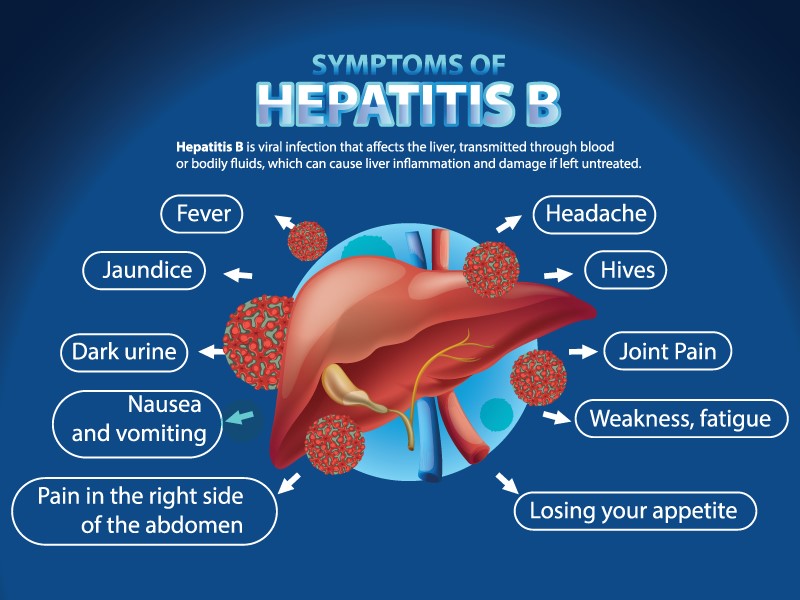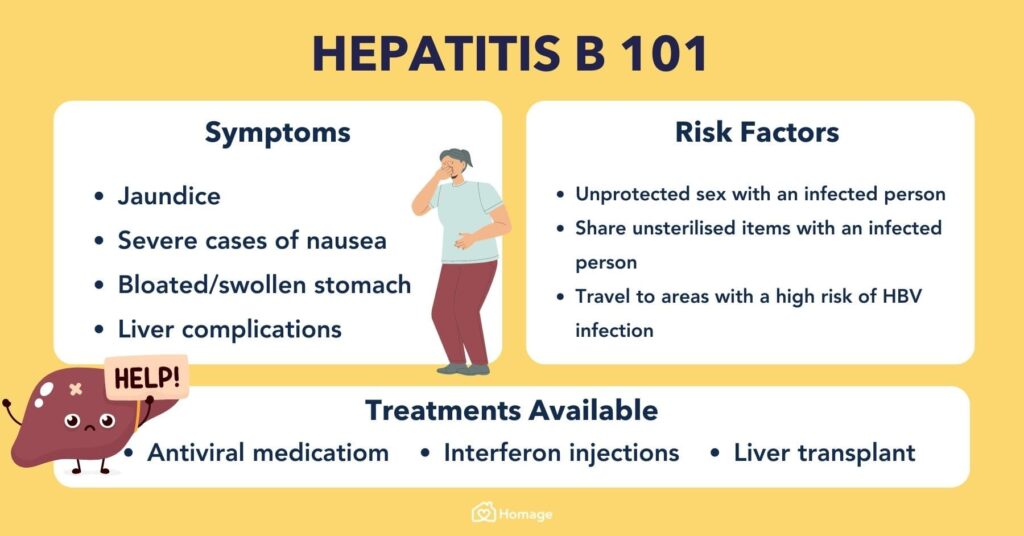Table of Contents
ToggleHepatitis B:
Hepatitis B is a common STI caused by the hepatitis B virus found in the large DNA. It is associated with three antigens of their antibodies, affecting the liver and can have a sudden onset.
Modes of transmission:
- Blood and blood products.
- Direct contact with saliva, tears, and sweats from an infected person.
- Transplacental transmission during pregnancy and at birth.
- Through vaginal fluids and semen during live sex.
- Vertical transmission via breast milk (mother to child).
Risk factors:
- Unborn children with an infected mother.
- Babies of infected mothers who are breastfeeding.
- Health workers due to exposure to fluids from infected persons.
- Drug abusers who share needles, especially from injection.

Signs and symptoms:
Early signs and symptoms:
- Skin eruptions.
- Urticaria.
- Arthralgia.
- Lassitude (general weakness).
- Anorexia.
- Nausea and vomiting.
- Headache, fever, and mild abdominal pain.
Later signs and symptoms:
- Clay-colored stool.
- Dark urine.
- Increased abdominal pain.
- Severe jaundice.
Screening and diagnosis:
- Regular screening for all persons at high risk of contracting hepatitis B.
- Hepatitis B antigen screening test to detect active infection.
- Additional laboratory studies may include AnG HBC, S.G.O.T, alkaline phosphatase, and liver pares.
Management:
- No specific management has been developed for Hepatitis B.
- Recovery is usually spontaneous in 3-16 weeks.
- Bed rest, high protein diet, low-fat diet, and increased intake of fluids are advised.
- Persons are advised to avoid drugs, alcohol, and other medications metabolized in the liver.
- Women with definite exposure to hepatitis B should be given hepatitis B immunoglobulin (HBIG) and begin the hepatitis B vaccine series within 14 days of the most recent contact to prevent infection.
- High levels of personal hygiene are encouraged.
Treating Chronic Hepatitis B
For chronic cases, a number of prescriptions will be given to help alleviate your or your loved one’s condition. Be sure to discuss the potential side effects of treatment with the doctor beforehand. Among the medications you may be given include:
- Antiviral medications: WHO recommends the use of oral medications, specifically tenofovir or entecavir, to combat HBV infection and reduce the chance of liver damage or other complications.
- Interferon: Interferon alfa-2b is a synthetic version of a protein that the body naturally produces. Injections of interferon alfa-2b are given to suppress the growth of the HBV virus in the body. It can also help to reduce the intensity of liver damage.
- Liver transplant: If liver damage has advanced significantly, you or your loved one may need to undergo a liver transplant. This surgical procedure removes the damaged liver and replaces it with a healthy one from either a living or deceased donor. As the liver can regenerate slowly, it is possible to use a part of a healthy liver for the transplant. An unfortunate side effect of a transplant is that the receiver will need to take anti-rejection drugs for as long as they live.
Prevention:
- Hepatitis B vaccination is the most effective active means of preventing hepatitis B virus infection.
- Recommended for all non-immunized persons with multiple sexual partners, intravenous drug users, health center workers, persons seeking STI treatment, sex workers, and women whose partners are IV drug users.
- The vaccine is given in a series of three doses over a period of six months, with the first two doses given at least one month apart, and the first and third doses at least four months apart.
- Administered in the deltoid muscles of adults.
Patient education:
- Explanation of hepatitis B, including transmission, stages of infection, and series of infections.
- Emphasis on the need for immune-prophylaxis for household members.
- Advice for infected persons, especially women, to maintain a high level of personal hygiene (handwashing, proper disposal of pads, and avoiding sharing sharps).
- If partners are not vaccinated, they should use condoms correctly and consistently.
- Teaching all uninfected persons to avoid kissing, sharing dishes, or saliva, and to wear protection.
- Education on the immediate cleaning of any spillages of blood or body fluids with soap and water.

